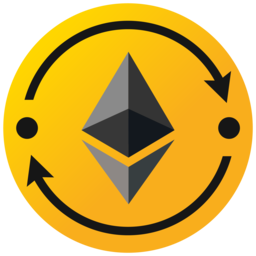Introducing Yolc
Posted 2025-01-06 09:00:00 ‐ 5 min read
Yolc is a safe, expressive, fun language for Ethereum, powered by YulDSL/Haskell.
Background
On 30th July 2015, the Ethereum network went live.
Fast-forward 10 years. By the time of writing this post, according to etherscan, the Ethereum network has made 2.6 billion transactions and processed 21.6 million blocks. It currently processes 13 transactions per second on its base layer alone, while a few layer 2s further scale its capacity at a much higher throughput of transactions per second.
Ethereum has already significantly impacted the world and is here to stay.
Programming on Ethereum, as a smart contract platform, has never been easier since the creation of the Solidity language. Many have benefited from it, creating worldwide socially and economically impactful experiments and applications simply by having a computer and an internet connection.
Ethereum's success has attracted much brainpower to its ecosystem. Over the years, some have also left and attempted to replicate its success by bringing the best of the current human knowledge through a clean slate start. It is a healthy market phenomenon of competition. Still, as a citizen of the Ethereum ecosystem, it is also an important signal that there are areas where we can learn and progress further.
What The Yolc!?
Yolc (as opposed to... solc, the solidity compiler) was born in response to one specific area: the Ethereum ecosystem needs a general-purpose programming language that is safe, expressive, and as fun as Solidity to work with.
General Purpose
Yolc is not entirely a new language. Instead, it embeds itself in Haskell language. Therefore, programming in Yolc is programming in Haskell, a general-purpose language with its share of success in the industry, including the latest ones such as Groq.
Additionally, Yolc implements both the Ethereum contract ABI specification and a domain model of Solidity/Yul entirely inside the Haskell language so that you can access all Haskell language features before the Haskell code gets compiled into the Solidity/Yul code.
Safe
Haskell is a purely functional language that provides many type-level safety features when programming. One of the safety features is "LinearTypes," which powers one of the unique features of Yolc: "linearly versioned data." In short, this makes a class of vulnerabilities, such as reentrance issues, impossible to pass the type-checker. It is a direct result of having implicit data versioning when dealing with data retrieved from the "world," whereby "outdated information" cannot be used in the current state of the "world."
Here is an example (with some code omission for simplicity) of data versioning:
-- STEP 1: Fetching account balance.
-- It is tagged with data version 0
balanceBefore <- balance_of account
-- ... some code omitted ...
-- STEP 2: Calling external contract's onTokenMinted function,
-- which advances world data version to 1
externalCall onTokenMinted account mintAmount
-- STEP 3: ⛔ CANNOT COMPILE: balanceBefore has data version of 0,
-- but the wolrd has moved on to version 1.
sput (balance_ref_of account) (balanceBefore + mintAmount)
Swapping step 2 and step3 will produce the correct code.
In the next blog posts, a more detailed explanation of linear safety will explain how it actually works and how to use it in your advantages.
Expressive
With Yolc, one should write one's core smart contract in pure functions where storage or external contract interactions are not involved. Pure functions do not require linear-type safety.
Yolc incentivizes you to write more pure functions because writing linear-type safety code requires some crafting, a trade-off in exchange for higher-level code safety.
In contrast, writing pure function code in Yolc is expressive since you can access all Haskell language features, including pattern matching, generalized algebraic data types, parametrically polymorphic functions, etc. More future blog posts will explain these features as more becomes available to Yolc.
Here is an example of patter matching on optional (Haskell's Maybe type) numbers:
-- 1. The following is a lambda expression in Haskell
-- of two optional numbers `x` and `y`, and
-- a non-optionan default value `def`.
-- 2. The `match` function pattern matches the expression `x + y`
-- which produces a optional number.
\x y def -> match (x + y) \case
Nothing -> def -- in case of number overflown
Just z -> z -- otherwise, just do it
Fun
Once you have access to more advanced and modern language features, writing code that is more likely to be safe in a production environment, programming on Ethereum becomes a fun experience.
Thus, the Yolc project's core motivation is to balance safety, expressiveness, and fun when programming on Ethereum.
Join!
Today is the launch of the technical preview of the Yolc project. It is the first milestone where Yolc can produce a partial ERC20 code deployable to Ethereum networks, demonstrating the key idea of linear-type safety. The technical preview still has its rough edges, but you can already get started.
It has a roadmap to reach key feature parity with Solidity by 2025 Q1, shipping unique features beyond Solidity all the time, and adoption from key projects, such as Superfluid Protocol prototyping its core logic of next version using Yolc.
I invite you to join the journey of Project Yolc by following the updates and learn about Yolc via your favorite channels listed in linktr.ee/yolc. Let's shape the future of Yolc and the Ethereum ecosystem together!
